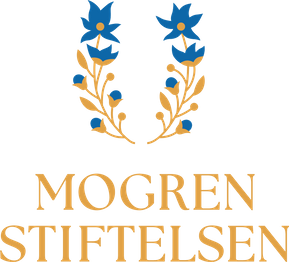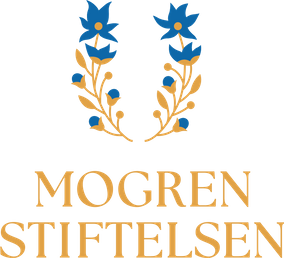2019 Medicine Prize
Valdemar Erling
Jury motivation: "Dr Valdemar Erling puts conversation and the patient at the centre, at a time when technological advancements risk creating a distance in human interactions in healthcare. This creates a valuable counterbalance to an overly technical and bureaucratic healthcare system."
Photographer: Kristin Lidell
About Valdemar Erling
Dr Valdemar Erling is a haematologist and chief physician at Sahlgrenska University Hospital in Gothenburg. He is being honoured for his efforts to improve patient-centred care by making language an essential tool in medical practice. He is dedicated to the humanistic aspects of health care and strives to change the practice of patient rounds.
As chairman of the Swedish Association for Narrative Medicine, Valdemar Erling has worked to make doctor-patient communication and patients' own medical stories an important part of care. Valdemar is a valued lecturer who is committed to sharing his knowledge with students, trainees, and colleagues.
He wants to provide care based on the patient’s story
When Dr Erling was 16 years old, he assisted in the emergency surgery of a young boy in northern Ethiopia. A trauma that awoke a lifelong passion to fight for each patient and their story.
“When I was a teenager, we lived in Ethiopia. My father had gotten into his mind that I would do an internship with a Danish surgeon in a small hospital in northern Ethiopia. He was the sole doctor there – he operated every other day and kept practice on the other days,” Dr Erling says.
As a 16-year-old, he was not yet considering a career in medicine. His father was a missionary and his mother a teacher at the Swedish school in Addis Ababa, right at the time of the revolution and the civil wars.
Today, he works as a haematologist and chief physician at Sahlgrenska University Hospital in Gothenburg. But it all began in the turbulent Ethiopia of the 1980s.
A trauma and an idea
One night an unconscious boy was brought to the clinic. He had fallen down a mountain and the surgeon had to perform emergency surgery. There was no one nearby to assist him, except for the intern Valdemar.
“The boy lost his life at the operating table that night. I remember how the surgeon had to go out and tell his family. To this day, just telling this story brings out strong emotions in me. I was only a child. But in the midst of it all, when the relatives started crying, I heard my own thoughts: “This is what I should do, if anything.””
It was the passion to make a difference, even if it would not always be possible, as well as a total dedication to fight for each and every patient, that was planted in him that night. When it became time to choose a career, his boss guided him towards haematology and the blood cancer type myeloma. In some ways, it was not unlike that night in Ethiopia.
“You’re in the field and you meet people near death, just like over there. But because we know so much about myeloma today, we can allow more patients to live a good life with the right kind of medication and treatment.”
Empathy is a part of healing
Since then, Dr Erling has worked in the field of haematology for many years. Because of his passion for the personal encounter, he founded the Swedish Association for Narrative Medicine.
“Narrative medicine is about our ability to make room for each person’s story in our clinical everyday life, in the meeting between patient and medical professional. How this is done is a key factor in how well the medical administration works and for how well the patient is able to cope with their illness,” says Dr Erling.
Although narrative medicine has received increased attention in recent years, there is still a long way to go before this view and knowledge will make a real impact on healthcare.
“My medical students spend a lot of time thinking about bedside manners when they are new doctors. However, they very quickly realise that this is not necessarily what is appreciated in everyday clinical work, and that is strange,” says Dr Erling.
It is possible to develop the ability to meet people in situations where everything is falling apart. It is, however, not possible to follow a care plan for such situations, and yet we keep talking about care plans, he points out.
“We measure and talk about the numbers, but the measuring alone will not improve healthcare. If I look at my patient list for today, I have maybe four patients. Ten years ago, there were eight names on the list. That doesn’t mean I talked less, just that doctors today spend more time on administration.”
The most important customer relationship in the world
How can empathy play a greater role in healthcare? Dr Erling believes that care must be rooted in values, which means asking yourself what is truly important and meaningful, and rewarding that. He refers to a recent conversation with his brother, who used to be a manager at IKEA.
“In my salary negotiations, I am assessed on how much research I do, the number of teams I am a part of and the number of hours I am on call. I am not assessed on my patient relationships. In my brother’s salary negotiations, the customer relationship is central, since IKEA cares about the customer experience. Why don’t we? I think we healthcare professionals have a customer relationship that is much more important.”
The quest for structure in administration is well-intentioned, according to Dr Erling, but he also sees how new systems often have the opposite effect. At a basic level, he suspects a lack of trust in the physicians’ competence and the patient encounter.
“If I may rant a bit, it’s as if today we have to do a magnetic x-ray to determine whether a lower leg is amputated or not. If the lungs sound good, we don’t really need to do a chest x-ray. When we let the information from the conversation with the patient fade into the background, we increase the administrative burden.”
Narrative medicine
“The more time I have spent working, the more I have understood the importance of building trust in the patient encounter. Simple things like telling the patient where to hang their coat. You have no idea how much happens in the first half minute. The patient starts to tell you what is important to them, and that is what becomes important to me as a physician.”
Ten years ago, no one had heard of the term “narrative medicine”, but now it is becoming increasingly popular in Swedish health care. There is currently a movement in society to give more space to patients’ stories, Dr Erling says hopefully.
“I think we’re going through a trial by fire now. I wish that hospital management used our experience of care to assess what is important and to focus the discussions accordingly. And this is actually happening!”
Incredible people at different levels of hospital
management now dare to be open to this way of working, he describes. This means that change can come from values, and lead to healthcare rediscovering what it means to fight for each and every patient.
“What we’re talking about now – empathy and stories, families and relatives – is so natural in Ethiopia. I have been back many times since I was a teenager, and it hits me every time. I see the suffering and the injustice, but what I take back with me is how they value time with each other. That continues to inspire me.”

